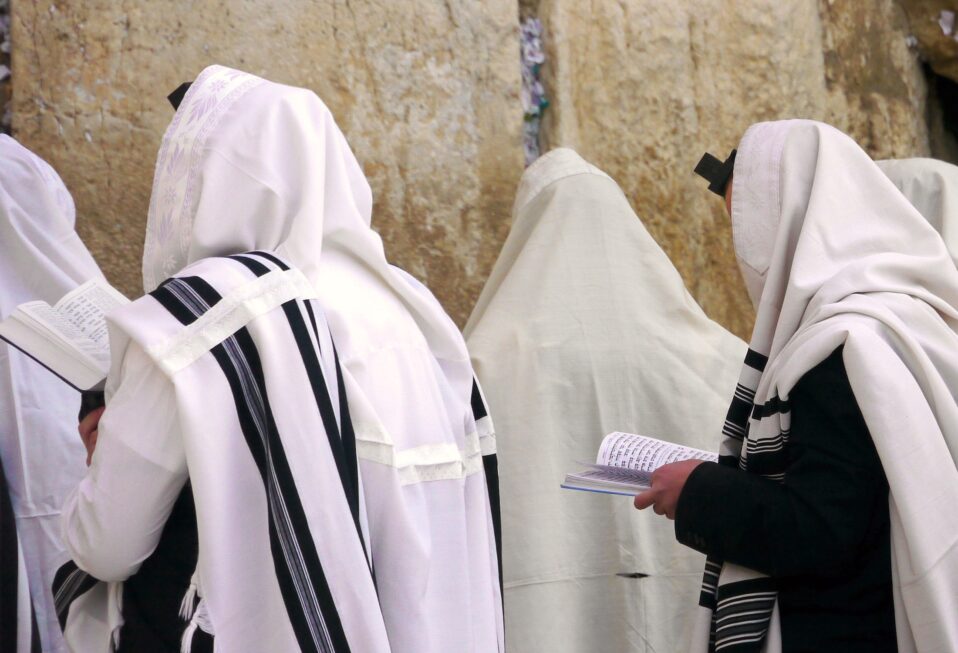By Julie Stahl
“Be careful to celebrate the Day of Atonement on the tenth day of that same month—nine days after the Festival of Trumpets. You must observe it as an official day for holy assembly, a day to deny yourselves and present special gifts to the LORD” (Leviticus 23:27 NLT).
Yom Kippur is the Holiest Day in the Jewish year, the “Day of Atonement.”
The 10 days between Rosh Hashanah and Yom Kippur are known as the “Ten Days of Awe.” This is your chance, so to speak, to get your heart and relationships right before Yom Kippur. According to Jewish tradition, this is the time that one’s name is either inscribed or not in the Book of Life for another year.
“These are heavy, heavy days of repentance, reflection, and seeking God’s face as we prepare to go stand before Him in a state of fasting, a state of humility on the day of Yom Kippur,” says Boaz Michael, founder of First Fruits of Zion.
In some traditions, worshippers pray Selichot or slichot prayers (“forgiveness”) as much as a month before Rosh Hashanah to make sure they are prepared for that day.
“The Bible speaks about Yom Kippur in terms of being a great day of judgment, of us standing before God. It’s traditionally, according to a Jewish perspective, a time in which we will literally be standing before the Father on that Day of Judgment,” says Michael.
It’s customary to wear white on this day. In some traditions, men wear a white robe or, in Yiddish, kittel. That tradition comes from Isaiah 1:18 (NLT), where God says, “Come now, let’s settle this. … Though your sins are like scarlet, I will make them as white as snow. Though they are red like crimson, I will make them as white as wool.”
Yom Kippur has five prayer services throughout the day, which is more than any other Jewish holiday.
“The Viddui is the central prayer of confession and forgiveness of the Jewish people on Yom Kippur. And it’s a prayer that they pray not only on behalf of themselves but on behalf of all the Jewish people around the world,” says Reverend David Pileggi of Christ Church in Jerusalem’s Old City.
He says that the Viddui prayer recognizes the words of Jeremiah: “The human heart is the most deceitful of all things, and desperately wicked. Who really knows how bad it is?”
(Jeremiah 17:9 NLT).
“One thing we learn from the Jewish people about Yom Kippur is that it’s not enough to say you’re sorry. You have to confess, say you’re sorry, and then at the same time take practical steps to change your behavior,” says Pileggi.
He says there’s a parallel between Yom Kippur and the teachings of Jesus.
“We have a saying of Jesus, don’t we? It says, if you bring your gift to the altar and your brother has something against you, leave your gift at the altar and go and be reconciled with your brother. Jewish tradition says, to go get your relationship right with your neighbor, with your brother, with your family member, forgive and be reconciled and then on the Day of Atonement, when you begin to fast and pray and to confess, God will hear your prayer and forgive you as you have forgiven others,” says Pileggi.
“It’s the teaching of Jesus and it’s also something that’s part and parcel of Jewish tradition and here the two line up very nicely,” Pileggi adds.
In the synagogue, the Book of Jonah is read.
“Jonah is a symbol of repentance. He’s commanded by God to call the people of Nineveh to repent, but he himself was struggling through his own reflections about who receives God’s judgment and who receives God’s mercy,” says Michael.
“So, Jonah can so often symbolize our own actions—doubting God, disobeying God, and determining who’s worthy of His redemption. But, like Jonah, we’re invited to repent of our disobedience and prejudices so that we can rejoin God in building His kingdom,” Michael adds.
He affirms that Yom Kippur holds a deep meaning even for those who believe in Jesus.
“It’s through the work of Messiah that our sins are taken away. He is our great atonement. I think this is a beautiful biblical understanding for us to affirm and hold onto in the context of our daily lives, but at the same time, we also need to be reminded to live a life of repentance,” Michael concludes.
Holiday Greeting: G’mar Chatimah Tovah (“May you be sealed for good in the Book of Life”) and Tzom Kal (used to wish others an “easy fast”).
Julie Stahl is a correspondent for CBN News in the Middle East. A Hebrew speaker, she has been covering news in Israel full-time for more than 20 years. Julie’s life as a journalist has been intertwined with CBN—first as a graduate student in Journalism at Regent University; then as a journalist with Middle East Television (METV) when it was owned by CBN from 1989-91; and now with the Middle East Bureau of CBN News in Jerusalem since 2009. She is also an integral part of CBN News’ award-winning show, Jerusalem Dateline, a weekly news program providing a biblical and prophetic perspective to what is happening in Israel and the Middle East.




Comment(1)-





Gail says
October 5, 2022 at 8:09 pmThis time of Atonement is so special thank you for announcing this it changes atmospheres in various places .
Praise to the Holy God.
Receive Devotionals and News Updates from Israel
Recent Posts
Seeing the Promise from Afar
Weekly Devotional: Faith Beyond a Lifetime
Parashat Yitro (יִתְרוֹ) “Jethro”
Zionist: A Word Branded as Toxic—But Should It Be?